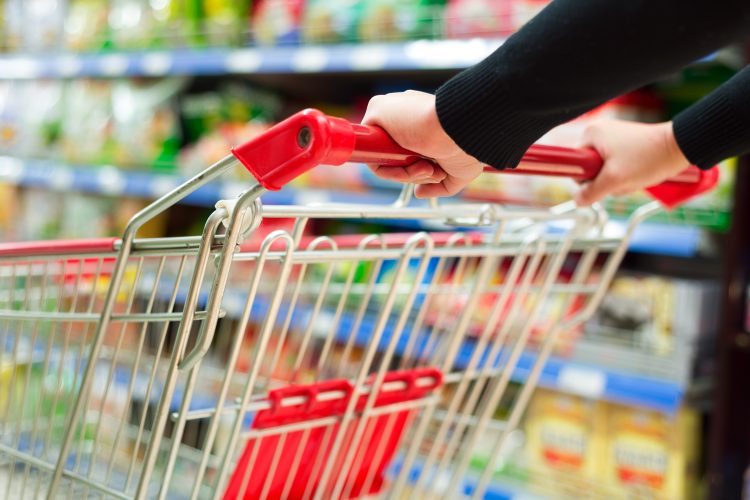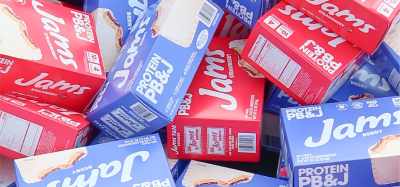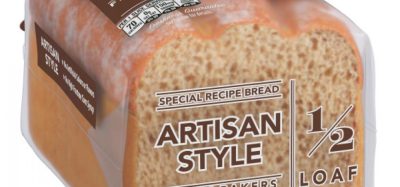Are supermarkets shifting away from supplier influence?
- Like
- Digg
- Del
- Tumblr
- VKontakte
- Buffer
- Love This
- Odnoklassniki
- Meneame
- Blogger
- Amazon
- Yahoo Mail
- Gmail
- AOL
- Newsvine
- HackerNews
- Evernote
- MySpace
- Mail.ru
- Viadeo
- Line
- Comments
- Yummly
- SMS
- Viber
- Telegram
- Subscribe
- Skype
- Facebook Messenger
- Kakao
- LiveJournal
- Yammer
- Edgar
- Fintel
- Mix
- Instapaper
- Copy Link
Posted: 9 April 2024 | Clive Black | No comments yet
Here, Clive Black explains how post-pandemic upheaval coupled with soaring energy and food prices is reshaping UK supermarkets, favouring private labels over proprietary brands.


By Dr Clive Black is Vice Chairman of Shore Capital Markets
Following the turmoil of the COVID-19 pandemic, war in Europe produced another negative externality that would have a quite material impact upon the mix of products sold in the UK supermarkets as well as where they would be bought.
The steep rise in energy and food costs that reflected an amalgam of interconnected processes drove up Office for National Statistics (ONS) CPI to levels not seen for a couple of generations (Q1 2023 food inflation was 19 percent) and with it the steepest rise in interest rates that we have ever seen, the latter accreting from a foolhardy 0.1 percent to the present 5.25 percent.
That inflationary pressure compressed living standards in the UK as even with pretty full employment, the movement in wages lagged that of prices, which had notable implications for the British grocery market and wider food system. Understandably, volumes, the number of items placed in a basket, nudged down whilst mix, the value of what goes into a trolley also negatively adjusted. Additionally, the drive for value led to unnatural traffic into the discount channel, where Aldi became the number three player by market share.
The mix point merits a little more investigation, because in trading down it was not just a case of folks switching out of, for example, fresh and chilled into ambient and frozen lines, the latter offering longer shelf-life, so less wastage, but also tending to be at lower unit prices. Rather, it also delivered one of the most notable switches in participation between private label (PL) and proprietary brands (PBs) that has ever been witnessed in such a short period of time.
Again, referencing NIQ data shared with in a presentation by Mike Watkins for Shore Capital in July 2023, the analytics house records that there was roughly a five percent or 500 basis point switch between PL/PB participation between 2021-2023 in the UK, favouring the former so taking it to c54 percent of the whole UK market. Accordingly, for brand owners, where most lost share, some notably did not it should be said, this sort of value and volume switch will take a long time to re-coup if it takes place at all.
In the old days, we think back to the likes of 2006, when there was an inflationary spike, PBs would pass through case price rises and then seek to more aggressively promote for a period to offer value and maintain share. However, the rise of the German grocery discount chains in the UK, to number three and number five current market positions, plus the likes of B&M and Home Bargains activities in the PB arena, meant that in the 2020s the value-based superstores (e.g., Asda, Morrisons, Sainsbury and Tesco) would not be so supplier led like they were in the past.
Indeed, with proprietary in-house data analytics and loyalty schemes, Tesco and Sainsbury in particular introduced materially different, more focused and self-benefiting promotional processes through Clubcard and Nectar Prices, respectively, which has helped them to gain share since the pandemic ended whilst not opening new space. All this poses a challenge to PB owners, especially those who have not smelt the coffee beans of the British shopper, so probably permanently ceding share to PL.
Going forward, those PB owners may do well to be closer to the shopper because if brand share is only going to be dependent upon promotional strategies then more will be lost. All of which means that more fundamental questions need to be considered around the true components, values, deliverables and marketing of a brand. In this respect, innovation, therefore, in all its facets is going to be the critical process to future share direction, assuming that everyday operational disciplines (customer relations, service levels and so forth) are fulfilled.
It is likely to be a long haul back for proprietary brands…
About the author










